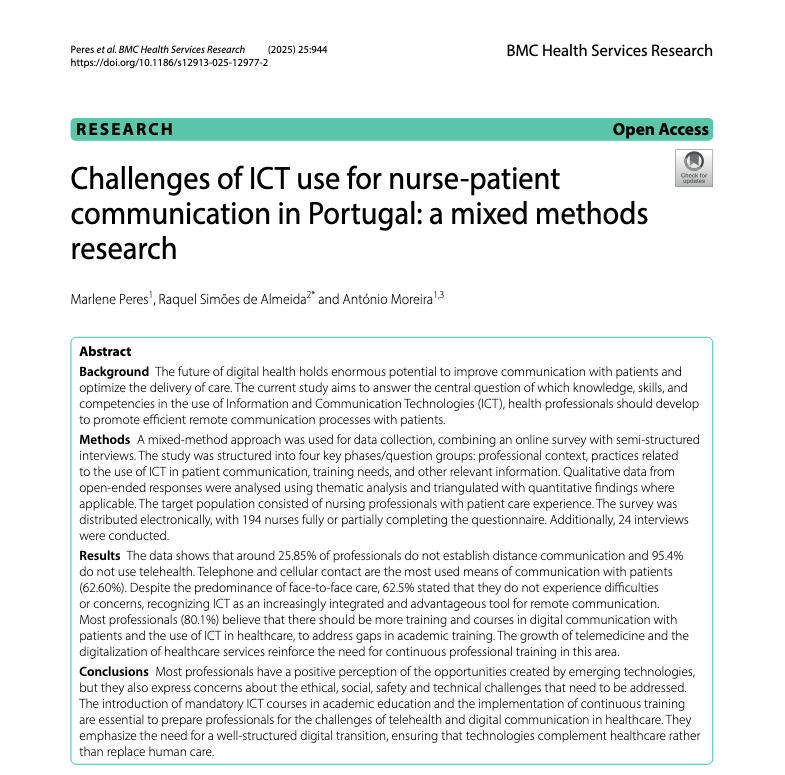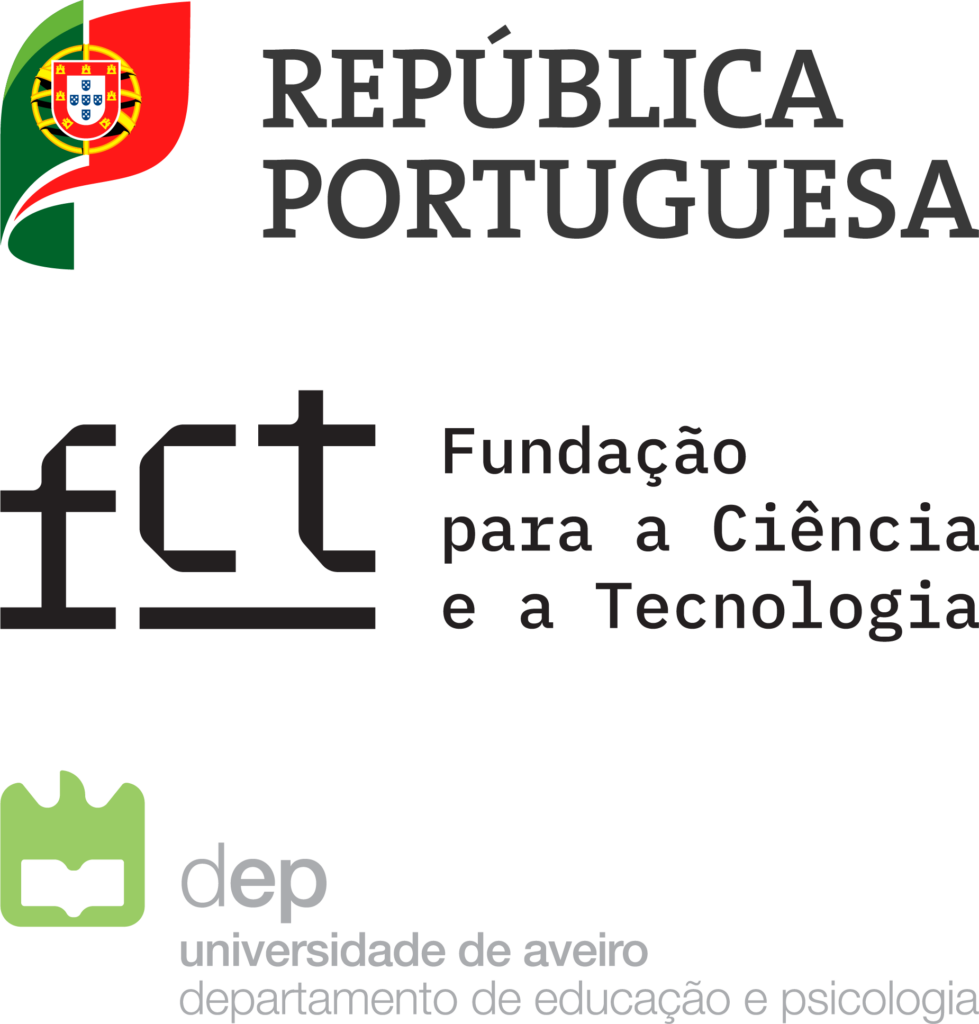Marlene Peres, Raquel Simões de Almeida & António Moreira (CIDTFF) | BMC Health Services Research, 25, 944
Abstract
Background
The future of digital health holds enormous potential to improve communication with patients and optimize the delivery of care. The current study aims to answer the central question of which knowledge, skills, and competencies in the use of Information and Communication Technologies (ICT), health professionals should develop to promote efficient remote communication processes with patients.
Methods
A mixed-method approach was used for data collection, combining an online survey with semi-structured interviews. The study was structured into four key phases/question groups: professional context, practices related to the use of ICT in patient communication, training needs, and other relevant information. Qualitative data from open-ended responses were analysed using thematic analysis and triangulated with quantitative findings where applicable. The target population consisted of nursing professionals with patient care experience. The survey was distributed electronically, with 194 nurses fully or partially completing the questionnaire. Additionally, 24 interviews were conducted.
Results
The data shows that around 25.85% of professionals do not establish distance communication and 95.4% do not use telehealth. Telephone and cellular contact are the most used means of communication with patients (62.60%). Despite the predominance of face-to-face care, 62.5% stated that they do not experience difficulties or concerns, recognizing ICT as an increasingly integrated and advantageous tool for remote communication. Most professionals (80.1%) believe that there should be more training and courses in digital communication with patients and the use of ICT in healthcare, to address gaps in academic training. The growth of telemedicine and the digitalization of healthcare services reinforce the need for continuous professional training in this area.
Conclusions
Most professionals have a positive perception of the opportunities created by emerging technologies, but they also express concerns about the ethical, social, safety and technical challenges that need to be addressed. The introduction of mandatory ICT courses in academic education and the implementation of continuous training are essential to prepare professionals for the challenges of telehealth and digital communication in healthcare. They emphasize the need for a well-structured digital transition, ensuring that technologies complement healthcare rather than replace human care.
– – – – –
Peres, M., Almeida, R. S., & Moreira, A. (2025). Challenges of ICT use for nurse-patient communication in Portugal: a mixed methods research. BMC Health Services Research, 25, 944. https://doi.org/10.1186/s12913-025-12977-2





